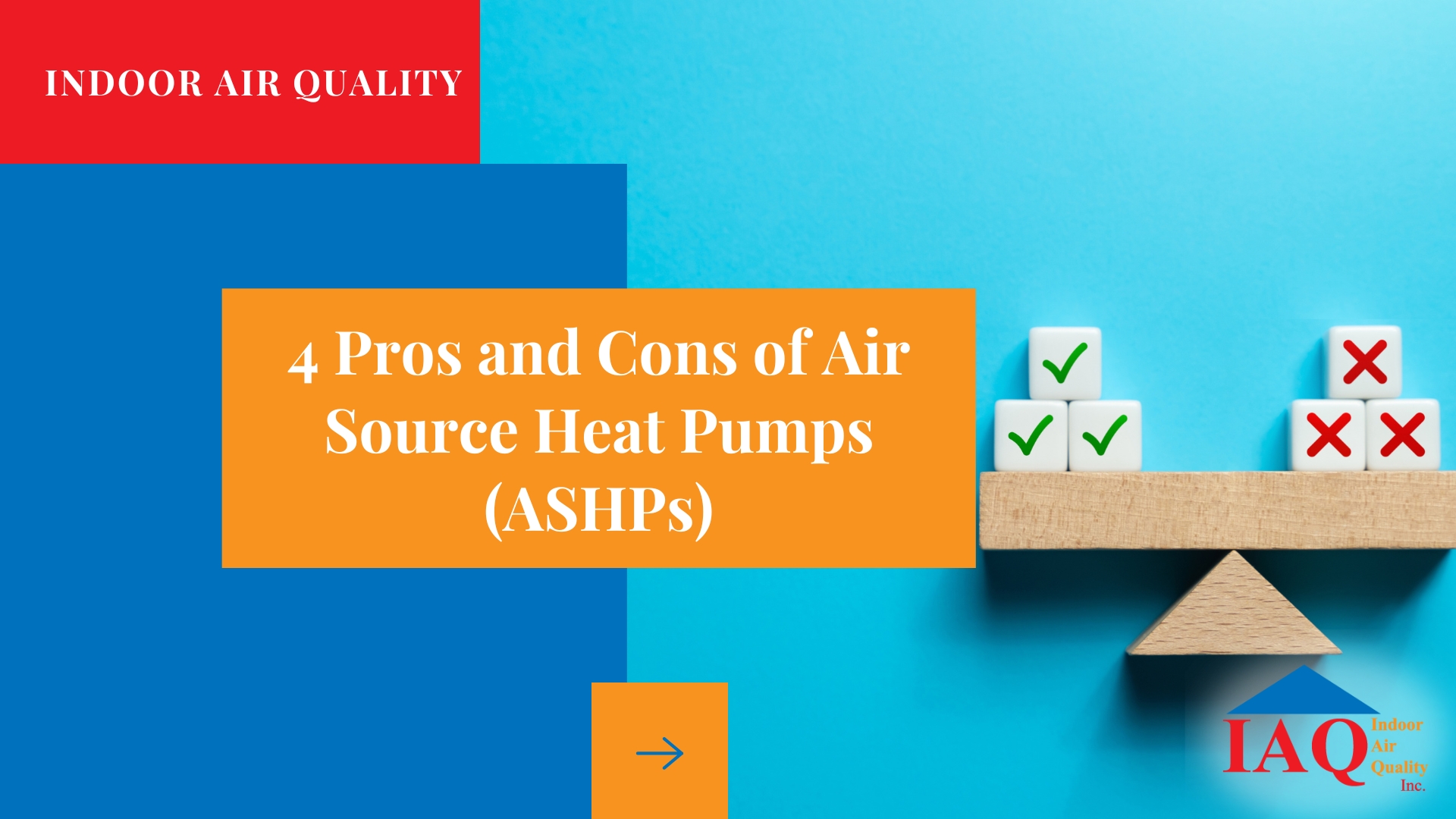Blog
4 Pros and Cons of Air Source Heat Pumps (ASHPs)
In the quest for more sustainable and energy-efficient heating and cooling solutions, air source heat pumps (ASHPs) have emerged as a compelling option for many homeowners. Particularly for those looking to reduce their carbon footprint and save on energy costs, ASHPs offer an innovative way to heat and cool residences. However, like any technology, they come with their own set of pros and cons.
What are Air Source Heat Pumps?
Air source heat pumps are systems that transfer heat from outside to inside a building, or vice versa, to provide heating or cooling. By exploiting the outdoor air’s thermal energy, these systems can efficiently maintain comfortable indoor temperatures throughout the year.
Pros of Air Source Heat Pumps
1. Energy Efficient
One of the standout features of ASHPs is their energy efficiency. They use less electricity compared to traditional heating and cooling systems, as they simply transfer heat rather than generate it. This efficiency can lead to significant savings on utility bills over time.
2. Environmentally Friendly
ASHPs have a lower carbon footprint because of their efficient use of electricity and reliance on the air as a heat source. By reducing the demand for fossil fuels, these systems can contribute to a reduction in greenhouse gas emissions.
3. Versatile and Space-Saving
Whether it’s blistering summers or freezing winters, air source heat pumps can keep your home comfortable year-round with both heating and cooling capabilities. Plus, they require less space compared to separate heating and cooling systems.
4. Financial Incentives
There are rebates and incentives for installing energy-efficient systems like ASHPs. These financial perks can help offset the initial investment costs.
 Cons of Air Source Heat Pumps
Cons of Air Source Heat Pumps
1. Upfront Costs
Despite potential long-term savings, the initial cost of purchasing and installing an air source heat pump can be higher than traditional systems. This can be a drawback for homeowners working within a tight budget. Luckily, rebates and tax credits are available to offset these costs.
2. Performance in Extreme Temperatures
While ASHPs are effective in mild climates, their efficiency can diminish in extremely cold or hot conditions. In areas where temperatures frequently plummet below freezing, supplemental heating systems may be necessary.
3. Outdoor Noise
The outdoor component of some air source heat-pumps can produce noise. Although this may be the case with older heat-pumps, many newer ASHPs are just as quiet as traditional air conditioners.
4. Aesthetic Impact
Some homeowners may find the outdoor units of ASHPs visually unappealing or may have limited suitable outdoor space for installation.
Is an Air Source Heat Pump Right for You?
For those prioritizing energy efficiency, environmental impact, and long-term savings, ASHPs could be an excellent investment. However, it’s crucial to consider the specific needs of your home, climate, and budget when deciding. Indoor Air Quality, Inc. can guide you through the options and help optimize your home’s comfort and efficiency year-round.
Interested in more information about heat pumps? Since 2001, Indoor Air Quality, Inc. has served the Denver Metro Area (see our service area). Check out our customer testimonials, contact us, or use our online contact form for more information and a free quote.

 Cons of Air Source Heat Pumps
Cons of Air Source Heat Pumps



